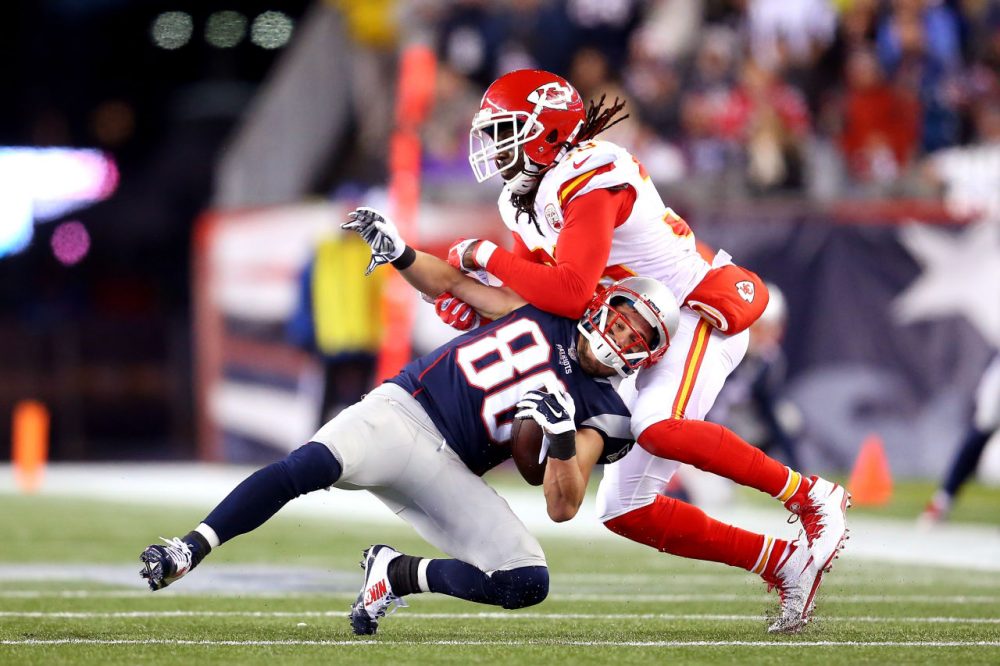Advertisement
Top NFL Official Admits Link Between Football And CTE
Resume
A top NFL official admitted for the first time yesterday that there's a link between football-related head injuries and chronic traumatic encephalopathy, or CTE, a degenerative brain disease that can cause memory loss, depression and dementia.
Jeff Miller, senior vice president for health and safety at the NFL, acknowledged the link during a House Committee on Energy and Commerce discussion about concussions.
Here & Now's Robin Young talks with Chris Nowinski, a former Harvard football player and co-founder of the Concussion Legacy Foundation, about the impact this admission could have on the future of the game.
Interview Highlights: Chris Nowinski
On his reaction to the NFL’s statement
“Frankly, I was surprised, just because the NFL had been so disciplined in trying to say the link was not proven for so long. And nothing really happened in the last month that I think would change that, but frankly I’m glad it’s happened because, if we hold the NFL to this statement, we can finally, from our end, stop wasting time trying to convince people there is a link and actually start focusing on prevention and treatment of CTE.”
On football’s relationship with CTE
“It appears that brain trauma can cause brain cells to start to degenerate. And we’ve seen it in people as young as 17, and the problem is that degeneration continues after you’ve stopped playing sports and potentially for the rest of your life. It starts in the frontal lobe and then goes to important areas of the brain for memory and emotional control. And so we see this evolution of symptoms over time that ends with dementia.”
On the significance of the NFL’s statement
“Well, if you look back in the last 10 years, the NFL once made an admission to The New York Times saying that they believe concussions lead to long-term effects and that’s unfortunately a little different than saying football is linked to CTE. Because the work we’ve done over the last decade has shown it’s really not concussions that’s linked to CTE, it’s repetitive brain trauma. If that becomes how we talk about the effects of football, that changes the whole game. We’re no longer talking about how many concussions are diagnosed in the NFL, we’re talking about, ‘How many years did you play football?’ and we’re talking about, is it appropriate for the NFL to be pouring tens of millions of dollars into marketing the game to children and their mothers while not discussing the risks of CTE with them?”
On the legal implications of the statement
“There are a ton of legal questions that will come out of this, from the idea of informed consent to, you know, does this change the course of the settlement that has not been yet signed off on by the judge that does not cover CTE for former NFL players? I’ve already had former NFL players reach out to me saying, ‘Does this change things?’ And frankly, the reality is maybe it should. The NFL has been keeping a very disciplined line. All their doctors, all their lawyers, everybody had been saying the link is not proven, but yesterday, they said it is. And therefore, we have to start changing our behavior accordingly.”
Guest
- Chris Nowinski, co-founder of the Concussion Legacy Foundation, and a former Harvard football player. He tweets @ChrisNowinski1.
This segment aired on March 15, 2016.